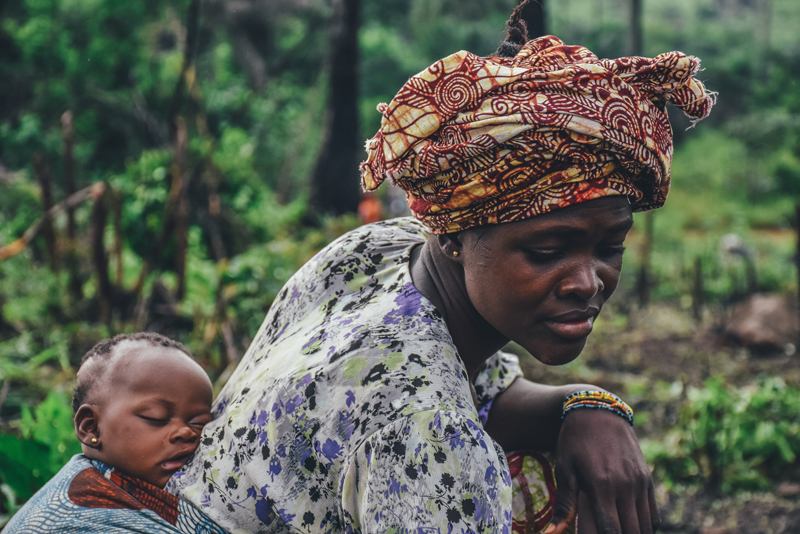
Preserving African Cultures in a Western Society

If you were born in Africa, you will remember seeing this on a daily basis: a mother carrying a child tucked in on her back by a piece of clothing, tightly wrapped around her chest and waist. The intimacy shared between the mother and the child can be testified by the piece and serenity displayed on the child’s face. I have yet to remember seeing a crying child in that position. it was the kryptonite of all tantrums, and a mother’s last resource; and it worked… all the times.
Now as an adult, it made more sense to me why this mother-and-son connection was widely used in Africa. For once, it gave the mother freedom to have her hands free to continue the daily chores and labors. Secondly, it allowed the child to see what the mother experiences, indirectly passing along cultural knowledge to a future generation. Third, it provided that tight comfort to the child, an automatic and nostalgic remembrance of the time spend inside mama’s womb prior to joining the outside world.
Now as an adult, living in a society where children are often taken care of by another entity other than their mothers (baby sitter, nanny, child care, etc…) as soon as they reach their first-month milestone, it saddens me to see that we, African in the diaspora, have lost that closeness and precious cultural moment that we, the first generation immigrant, benefited from our parents. I’ve watched my dear nostalgic wife try to carry on the culture with our firstborn son, but only to see that the act that once was known as a daily routine become a once-in-a-lifetime precious memory that none of our children will probably remember. Alas, she tried her best with her nostalgic heart, but only to succumb to the American way of life.
The Western culture may not be accommodating to our African lifestyle and culture, but I strongly believe we can always find a way to pass along the same African values in different ways. In this particular case, we talked about three main points that were shared between mother-and-son. For our family, we find a way to adapt and provide the same benefit in a different environment:
- Mom’s freedom to continue to work while keeping her child close to her
- The child is able to see what the mother experiences
- The intimacy shared between the mother and the child in that closeness
For us, it translated to raising our children from birth to crawling age at home, with at least one parent always available throughout the day. Meaning, we decided earlier on to keep our children home at least until they were able to crawl. During that time, we shared precious moments of carrying them around everywhere we went, and during every activity around the house. They might not have been on mama’s back, but they were able to see, smell, and sometimes even touch whatever mama as doing (cleaning, cooking, reading, eating, you name it). The only time they were left alone was when it came time to sleep (teaching early independence is a gem to cherish in the future). And every now and then, they still enjoyed a piggyback ride, African style, whenever time permitted.


So, yes, we live in a different world with different rules and expectations, but it does not mean we need to relinquish our beautiful African culture because of the new environment. The key is to learn to adapt and retain as much authenticity as possible; keeping the African culture alive among our children in the diaspora. So, play them African music cook them strong aromatic and delicious African meals; one day, your children will thank you for persevering on teaching them where they came from: Africa, our beautiful land.


